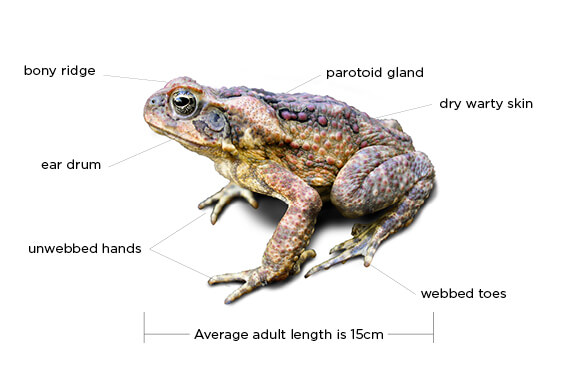Many people can’t tell the difference between a native frog and a cane toad because they share features such as warty skin, a visible ear drum and webbed toes.
However, unlike native frogs, adult cane toads have all of these features:
- distinct bony ridges above the eyes, which run down the snout
- a large parotoid gland behind each eye
- unwebbed hands but webbed toes
- dry warty skin
- cane toads can range in colour from grey, yellowish, red-brown, or olive-brown, with varying patterns.

Diagram showing parts of a cane toad to help with identification
Make sure it is a cane toad
Some species of native frogs are easy to mistake for a cane toad. Before you kill a cane toad, make absolutely sure it is a cane toad.
Native frogs play an important part in our environment and are protected in New South Wales by the Biodiversity Conservation Act 2016.
To make sure you don't kill a native frog by mistake, please take all toads under 4 centimetres long to a frog expert for identification. If handling them, use rubber gloves.
Listen to the calls of native frogs that are sometimes mistaken for cane toads and read the guide Friendly frog or invasive cane toad? to help you identify the invasive cane toad pests.